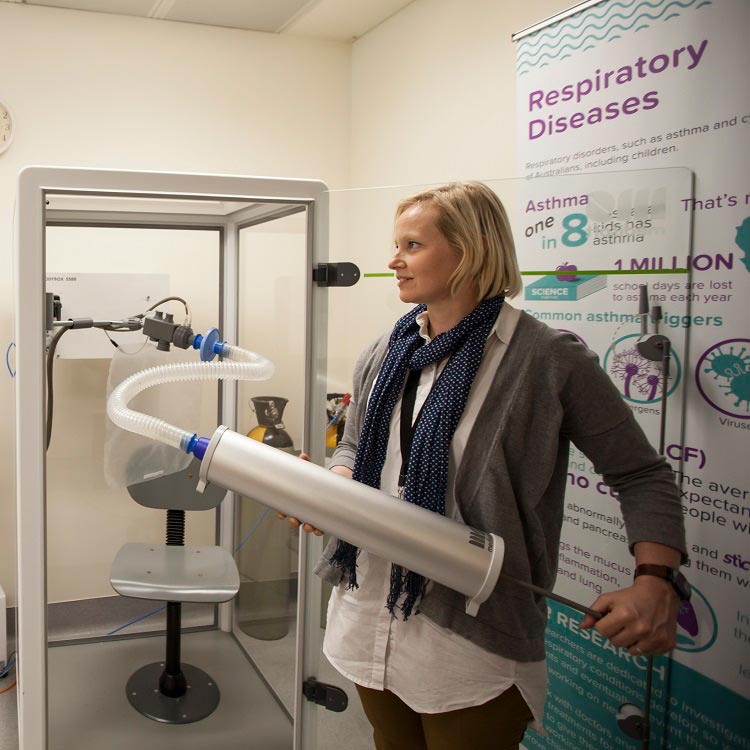Search
Research
Exploring the Complexity of the Human Respiratory Virome through an In Silico Analysis of Shotgun Metagenomic Data Retrieved from Public RepositoriesRespiratory viruses significantly impact global morbidity and mortality, causing more disease in humans than any other infectious agent. Beyond pathogens, various viruses and bacteria colonize the respiratory tract without causing disease, potentially influencing respiratory diseases’ pathogenesis.
Research
Airway epithelial repair in health and disease: Orchestrator or simply a player?This review attempts to highlight migration-specific and cell-extracellular matrix (ECM) aspects of repair used by epithelial cells
Research
Rhinovirus exacerbates house-dust-mite induced lung disease in adult miceIn this study, we combined human-rhinovirus infection with a clinically relevant mouse model of aero-allergen exposure using house-dust-mite in an attempt to...
Research
Assessing the unified airway hypothesis in children via transcriptional profiling of the airway epitheliumUpper and lower airways are conserved in their transcriptional composition, and variations associated with disease are present in both nasal and tracheal epithelium
Research
Oxidative stress and abnormal bioactive lipids in early cystic fibrosis lung diseaseSeveral lipid biomarkers of early cystic fibrosis lung disease were identified, which point toward potential disease monitoring and therapeutic approaches
Research
Blocking Notch3 Signaling Abolishes MUC5AC Production in Airway Epithelial Cells from AsthmaticsWe demonstrate that NOTCH3 is a regulator of MUC5AC production
Research
Cultures of HRV-C for investigations of pathogenesis in childrenAnthony Belinda Ingrid Kicic Hales Laing BSc (Hons) PhD BSc (Hons) PhD BSc PhD Rothwell Family Fellow; Head, Airway Epithelial Research Senior

News & Events
Very preterm babies at risk of declining lung function throughout childhoodA The Kids Research Institute Australia study published in The Lancet Child & Adolescent Health has found that survivors of very preterm birth face declining lung function
Research
Biodiesel exhaust-induced cytotoxicity and proinflammatory mediator production in human airway epithelial cellsCanola biodiesel exhaust exposure elicits inflammation and reduces viability of human epithelial cell cultures in vitro when compared with ULSD exhaust exposure
Research
Identifying SETBP1 haploinsufficiency molecular pathways to improve patient diagnosis using induced pluripotent stem cells and neural disease modellingSETBP1 Haploinsufficiency Disorder (SETBD) is characterised by mild to moderate intellectual disability, speech and language impairment, mild motor developmental delay, behavioural issues, hypotonia, mild facial dysmorphisms, and vision impairment. Despite a clear link between SETBP1 mutations and neurodevelopmental disorders the precise role of SETBP1 in neural development remains elusive.
